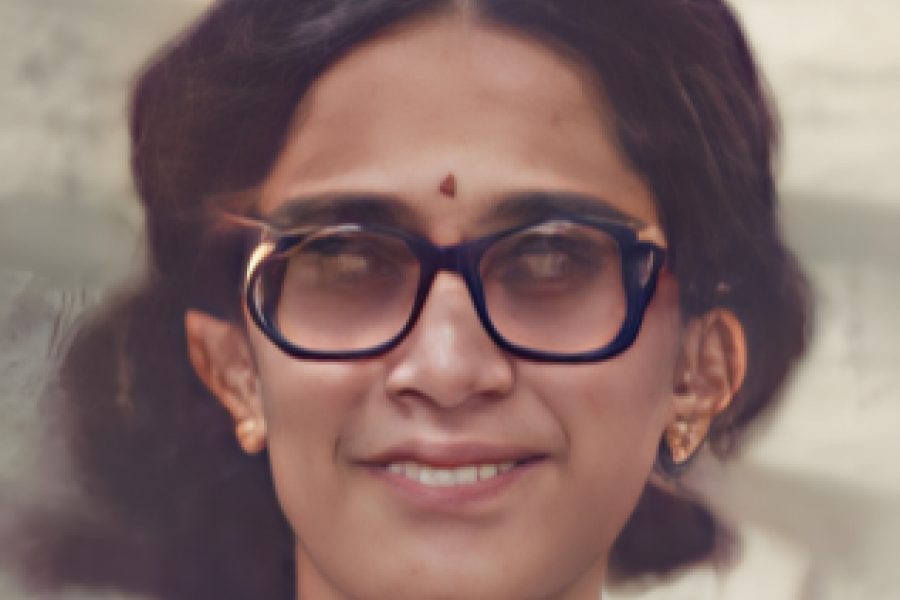The Automated Condition. Manifestations and Narratives in Art, Literature and Culture
WEDNESDAY MAY 11 EST

Generative image by Aarati Akkapeddi. Produced using a StyleGAN2 model trained on photographs from the artist’s family album.
12.00 OPENING ADDRESS Zoom
Robert Felfe Art History, University of Graz
Co-operative Art Techniques — before and at the Beginning of Modernism
Moderated by Carolyn Yerkes Art and Archaeology, Princeton
1.30 LUNCH BREAK
2.30 WORKSHOP FOR CONFERENCE PRESENTERS Zoom
Grant Wythoff Digital Humanities, Princeton
Writing with AI
5.00 - 7.00 - Drop-in Happy Hour Winiberies 1 Palmer Square, Princeton
THURSDAY MAY 12 EST
9.15 Panel I Automating Life [East Pyne 012 / Zoom]
Sean Lambert German, Berkeley
Kleist’s Brood: Graceful Automata from the Mechanical Turk to Digital Dali
Rebecca Uliasz Media Studies, Duke
Larger than Life: Automation and Influence in the Wake of Creative AI
Fabian Ebeling Media Studies, Eichstätt
Nicolas Schöffers’ aesthetic Machines as Prefigurations of Smart Environments
Moderated by Mary-Grayson Brook German, Princeton
10.45 Break
11.00 Panel II Automated Life
Elisa Riga German, Boulder
The Art Instinct in Animals
Yorick Joshua Berta Art History, Linz
Automated Endings: Transient Art in the 1960s
Moderated by Ameli M. Klein Art History, Graz/Collective Rewilding
12.00 Lunch Break PCLS East Pyne 011
12.45 Panel III Automated Labor
Dennis Schäfer German, Princeton
From Script to Print: The Scales of Automation
Livia Foldes Design and Technology, Parsons
NSFW Venus: Archives, Automated Censorship, and the Encoded Gaze
Moderated by Diana Little English, Princeton
1.45 Break
2.30 Artist Talk
Aarati Akkapeddi, in conversation with Mona Schubert Art History, Cologne/Graz
Tender Taxonomies: Reflections on Working with Personal Materials as Training Data
FRIDAY MAY 13 EST
9.15 Keynote Lecture and Film Screening [East Pyne 012 / Zoom]
Joanna Zylinska Media Philosophy & Critical Digital Practice, King’s College London
AUTO-FOTO-KINO: Imaging after Cinema and AI
Moderated by Dennis Schäfer German, Princeton
10.45 Break
11.00 Panel IV (Non-)Human Automations
Paul Labelle Music, Bonn
(Re)discovering the Human in History through Machine Learning – Jennifer Walshe’s A Late Anthology of Early Music Vol.1
Mona Schubert Art History, Cologne/Graz
Open Circuits. Conceptual Art and the Agency of the Camera
Moderated by Elisa Purschke German, Princeton
12.00 Lunch Break PCLS East Pyne 011
12.45 Panel V Psychology of Automation
Manuela Mohr French, Montpellier
A Life other than Human: The Evolution of Psychological Automatisms in mid-19th century French Fantastic
Marie-Louise James German, Princeton
Automatism Meets Intermediality: On the Cutting Table of Max Ernst’s La femme 100 têtes (1929)
J.C. Moran Gender Studies, Cambridge
Clouds of Desire: Automating Love as Narrative Promise
Moderated by Xiaoyao Guo German, Princeton
2.00 Break
2.30 Panel VI Automation Anxieties
Hagen Schmitz Politics, Berlin
Friedrich Pollock on Automation: Critical Thought on Technical Progress Between Karl Marx and Aldous Huxley
Verena Wolf German, Berkeley
Narratives of Risk: Control and Automation in Christa Wolf’s Störfall
Julia Irwin Media, Berkeley
Object Recognition, ‘Cratology,’ and the Discursive Field in the Making of Cold War Military Image Intelligence
Moderated by Florian Endres Comparative Literature, Princeton
3.45 Break
4.00 Final Discussion / Roundtable
CO-SPONSORS
Princeton University Graduate School, Department of Art & Archaeology, Department of Classics, Department of Comparative Literature, Department of French and Italian, Department of Music, Department of Slavic Languages and Literatures, Program in Cognitive Science, Renaissance and Early Modern Studies, European Cultural Studies, Program in Media and Modernity, Center for Collaborative History, Center for Information Technology Policy, Center for Migration and Development, the School of Architecture, and the Council of European Studies.
In collaboration with the FWF-funded project “Co-operative Art Techniques” at the Center for Cultural Studies, University of Graz.




